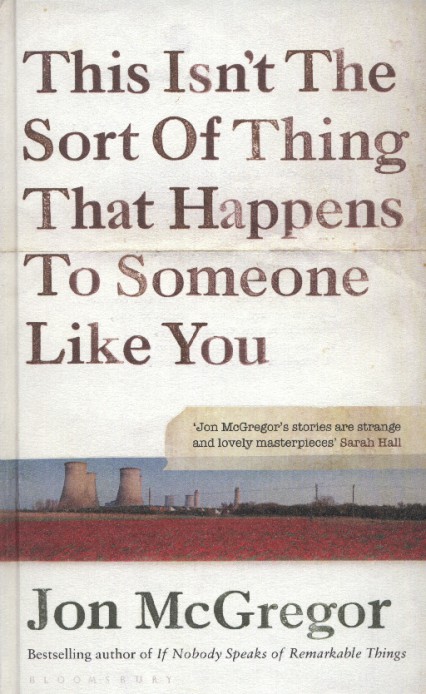This Isn’t The Sort Of Thing That Happens To Someone Like You is the first collection of short fiction from the acclaimed author of If Nobody Speaks Of Remarkable Things, Jon McGregor. In fact, if there were a prize for understated titles that aren’t afraid to be suggestive at the expense of being immediately memorable, McGregor would win hands down (his second and third novels were the also elliptically titled So Many Ways To Begin and Even The Dogs). Just as well then that McGregor would also win the prize for the twenty first century British author whose work most lyrically and powerfully evokes the quiet rhythms of everyday lives.
Indeed, the grammar and craftsmanship of his titles are a good indicator of McGregor’s range. Born in 1976, he is of a generation of writers who have come through creative writing degrees; however, his degree is in Media Technology and Production and according to his website his pre-
Set in rural Lincolnshire, each story is subtitled with the name of an obscure local settlement in much the same manner as the writer used ephemeral everyday objects in So Many Ways To Begin. Impressionistic maps depicting the rough outlines of hamlets give us some idea of an area neglected in mainstream British literature, but not much. ‘That Colour’, the opening story, sets the tone for much of the collection and is strongly reminiscent of Graham Swift’s Waterland, not merely for its fenland setting, but for the themes explored in stories with such evocative titles as ‘If It Keeps On Raining’, ‘The Remains’, ‘The Last Ditch’ and ‘I’ll Buy You A Shovel’.

by Jon McGregor
Bloomsbury, 272pp, £14.99
Major British writers tend to become tied, in readers’ imaginations if not in actuality, to a landscape and a locale, as well as to a style. Dickens’ London, Hardy’s Wessex, Lawrence’s Nottinghamshire are all constructs of our minds. Modern writers like Ian McEwan have set novels in a variety of times and places, but again when we think of their body of work as a whole, often we resort to shorthand impressions which, far from being reductive, actually prove that their imaginative landscapes have entered our consciousness. For me, Jon McGregor is on the verge of joining this illustrious pantheon. The country of his fiction is not geographical – he has set work in an unnamed northern English cities and between Aberdeen, Coventry and Donegal, now Lincolnshire; he was born in Bermuda, raised in East Anglia and lives in Nottingham – but occupies a particular kind of mental space.
McGregor’s fiction, as amply demonstrated by this virtuoso display of storytelling, oscillates between the ordinary and extraordinary with a seemingly effortless ease. Jon McGregor is a writer’s writer in the sense that he is a master craftsman (he builds every story sentence by sentence; every word has a job to do; his choices – of grammar and syntax, of style and tone, of person and point of view – are impeccable); more importantly, he is also a reader’s writer. The stories connect us to characters within a few sentences; McGregor’s ear for colloquial speech patterns help us to empathise – we get inside the heads of a bewilderingly diverse range of characters. Some of the stories are really short – really, really short (in one case, one line: it’s worth it) – but still we read on.
We share the terror of a little girl watching her father’s arrest, we witness the effect of a visitor upon a woman’s marriage to a vicar, we wonder what happens to teenagers in a car. In ‘French Tea’, we hear a woman say ‘I went to London once’; in ‘Wires’, we hear reflections on the word ‘provincial’ – ‘Was it anywhere not-
This Isn’t The Sort Of Thing That Happens To Someone Like You. Only of course it is. Because this sort of thing is life. All sorts of things happen all the time. To people like you and me. McGregor’s grammar is always deliberate. The use of the second person in the title is no fluke; he is speaking directly to the reader. This is a collection of fiction, the title says; it wouldn’t happen in real life – not to you. And then as you read, you recognise yourself in people far removed from you in all kinds of ways – people who aren’t even real. You realise: this is what, at its best, fiction does; what it’s for.










